Stanislaw Sosabowski was born on 8 May 1892 and became a highly experienced solider during the First World War as part of the 58th Infantry Regiment of the Austrian Army. When the conflict had ended, he became a regular officer in the Polish Amy, and played a significant role in the defence of Warsaw after the outbreak of the Second World War. When Warsaw became occupied, Sosabowski was taken prisoner by the Nazis, but later escaped and was evacuated to Britain following the mass retreat at Dunkirk.
In September 1941, Sosabowski requested the task of forming the 1st Polish Independent Parachute Brigade in Scotland and in June 1944, he was made Major-General. During the first half of the Second World War, Sosabowski’s Brigade answered only to Polish command, and they trained in preparation for a parachute jump into Poland, to assist with the efforts to seize control of their homeland back from the Germans. However, this plan was never realised. In 1942, Lt-General Browning attempted to convince Sosabowski to relinquish control of his brigade by offering him command of a new airborne division. This was because, as the war developed, the 1st Polish Independent Parachute Brigade was seen as a desirable asset for Britain to adopt during the Allied invasion of Europe. Despite this, Sosabowski refused this offer as he wanted the original purpose of his brigade to stay intact. In June 1944, Sosabowski finally relented, and agreed that the brigade would be permitted to return to Poland, so long as they completed one Allied operation following the Normandy Invasion. As a result, the 1st Polish Independent Parachute Brigade was incorporated into the 1st Allied Airborne Army, and was placed under the command of Major-General Urquhart.
Sosabowski could be very argumentative with his superiors if he disagreed with their plans, which led to him being rather unpopular among his peers. However, it was thanks to his and others’ protestations that Operation Comet was abandoned in favour of Operation Market Garden, as Sosabowski viewed that the initial plan was too great a scale for a single airborne division to accomplish alone. These objections were echoed by other officers, most notably, Brigadier Hackett.
Sosabowski was still doubtful of Operation Market Garden, even though he admitted it was an improvement over Operation Comet. He believed that Arnhem would be heavily reinforced by the Germans, as it provided an entryway into Germany. Although this turned out to be the case, this was largely down to coincidence as the Germans failed to realise the significance of Arnhem, and the SS Panzer Divisions were only sent into the surrounding area by chance. Furthermore, Sosabowski was appalled when he learned that the drop zones were planned to be seven miles from the bridge, and would take place over three days. He felt that aircraft should have been found to lift all of the division on day one, and his aide-de-camp Jerzy Dyrda once said: "He always told us that an airborne operation is not a purchase by instalments". On the distance of the dropzones from the bridge, he later said "the point that struck me immediately, as in the planning of operation "Comet", was that all the dropping zones were at least six miles away from the objectives". He was also informed that if the bridge had not already been captured by the time of his arrival, he was to assist in these efforts, despite his paratroopers having no access to heavy weaponry or vehicles. This was owed to the fact that the paratroopers would be dropped south of the river while the gliders transporting said heavy equipment and vehicles would land north of it. Despite these concerns, Sosabowski reluctantly agreed to carry out the operation.
During the battle, Sosabowski's concerns about Arnhem were frequently validated. The Polish Anti-Tank Battery north of the river only unloaded three of the ten guns leaving England, with only two reaching Oosterbeek. Meanwhile, Sosabowski's personal jeep was seized by Germans after its driver was wounded and captured. The Germans erroneously announced that Sosabowski was dead after finding his suitcase in the vehicle, but in reality he had not left England yet. His obituary was even posted in the Glasgow Herald, and his brother had received several telegrams of condolence.
Secondly, Sosabowski had been assured by Urquhart on Thursday (21 September) that the Heveadorp ferry which the Poles were to take across the river was in airborne hands. When they got there, the Dutch ferrymaster had destroyed it in order to keep it from the Germans. Sosabowski was furious, allegedly stating "How can it have gone in just a few hours?".
Sosabowski’s combative nature was often the cause of internal conflicts among the higher ups during the battle of Arnhem. At the Valburg Conference, Browning, Horrocks and Major-General Thomas of the 43rd Wessex Division were so tired of Sosabowski’s frequent objections that they didn’t even ask for his opinion on their plan to cross troops, including those from the 1st Polish Independent Parachute Brigade, across the river Rhine. Sosabowski was understandably infuriated by the fact that his Brigade would be commanded without his consent, but was more disturbed by his belief that if the troops crossed the river at the location specified by his peers, they would land amongst German positions. Horrocks ended the conference by reprimanding him for his behaviour and threatened that if Sosabowski did not obey his orders, he would find someone who did. Ultimately, although Polish troops did not cross the river, those that did met the fate that Sosabowski had warned of. Sosabowski's Lieutenant, Dyrda, later said the Valburg conference had "the appearance of a court-martial session, where on one side sat the judges and opposite them the accused, alone".
After Arnhem, there was disagreement between the British commanders and Sosabowski over the use of the Polish Brigade. On 17 October 1944, Field Marshal Montgomery wrote to Field Marshal Brooke, stating "Polish Para Brigade fought very badly and the men showed no keenness to fight if it meant risking their own lives. I do not want this brigade here and possibly you may like to send them to join other Poles in Italy". On 20 November Browning wrote to Lieutenant-General Ronald Weeks, accusing Sosabowski of being "difficult to work with", "unable to adapt himself to the level of a parachute brigade commander" and "quite incapable of appreciating the urgent nature of the operation and continually showing himself to be both argumentative and loth to play his full part in the operation unless everything was done for him and his brigade". He was "forced, therefore, to recommend that General Sosabowski be employed elsewhere and that a younger, more flexibly minded and co-operative officer be made available to succeed him". Sosabowski later used his memoir to give his opinion on Browning:
"Looking back after all these years, I realise how wide the gulf was separating Browning and myself. He seemed to have the notion, not uncommon in the British Army, that most foreigners are fools and must be treated accordingly. In such circumstances, it is not surprising that small differences grew out of all proportion; but what I do not understand is why on occasions he should have taken personal offence".
Whilst Sosabowski's relationship with Urquhart was complicated, it had initially been warmer as he was one of the few British generals to express reservations about Market Garden. Ultimately, however, Sosabowski's tone was reconciliatory:
"Urquhart never quite understood the Polish point of view. In his book Arnhem he wrote of me: "He was, of course, a political leader as well, a role which led him into queer paths. There were times when I could not be certain whether he was debating a point from the military angle or merely trying to put over the Polish political cause. He fell out badly with General Browning on two or three occasions, and even at the end their relations were not of the best". [Sosabowski:] I am not a politician, I never have been and never will be; but I love my country and above all things and my first allegiance was always to Poland, as was that of my compatriots. Perhaps Urquhart realised this, for he dedicated his book "To all ranks who served in the 1st Airborne Division in September 1944 and their Comrades in Arms of the 1st Polish Parachute Brigade Group".
On 9 December 1944, the Polish President, Wladyslaw Raczkiewicz, relieved Sosabowski of his post at the request of Browning, who wanted him to be replaced with someone more cooperative. His letter read:
"Dear General,
It is from necessity that I must remove you from the command of the 1st Polish Independent Parachute Brigade. I would like to underline the merits of your service in this post and your proven character on the battlefield. I would like also to mention especially the fact that it was your energy and resolve which built up the Parachute Brigade.
With cordial respect,
W. Raczkiewicz"
Two Polish paratroopers protested the decision by going on hunger strike, but Sosabowski visited them at Christmas and convinced them to have a meal with him. After the war, Sosabowski remained in England and took up several civilian occupations, writing his memoir, Freely I Served, in 1960, before passing away from a heart attack in 1967. He is buried in Warsaw.
Compiled with information from:
The Pegasus Archive
Arnhem - 1944: The Airborne Battle, Martin Middlebrook
Freely I Served, Major General Stanislaw Sosabowski
Read More
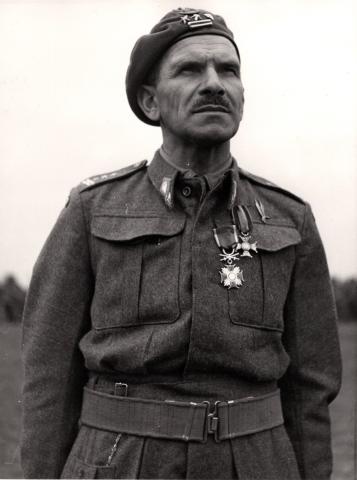
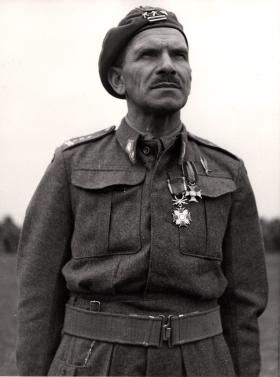
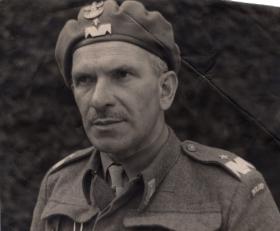
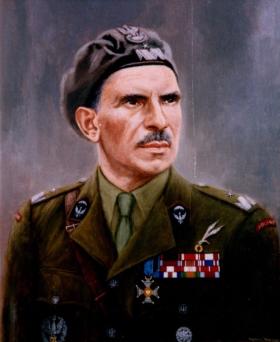
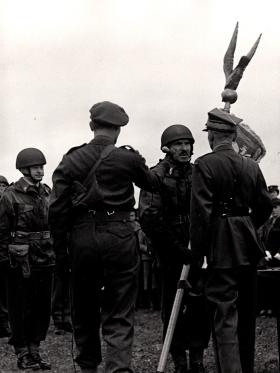
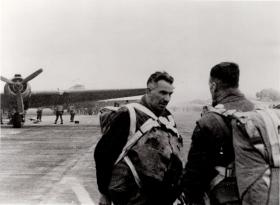
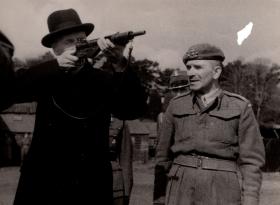
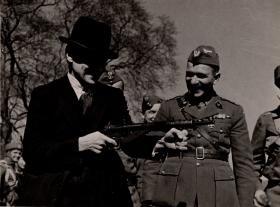
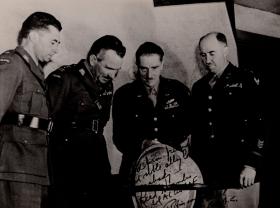
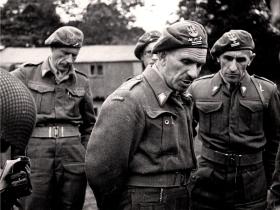
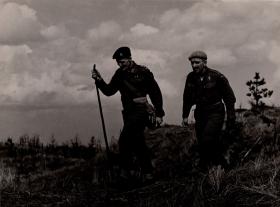
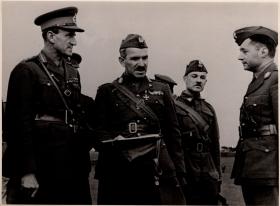
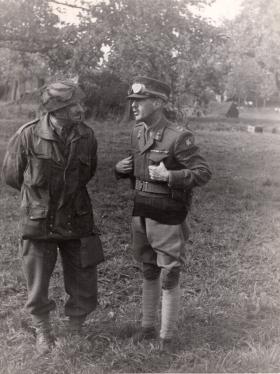
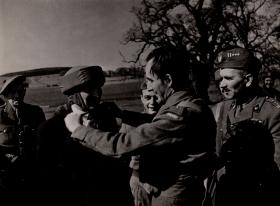
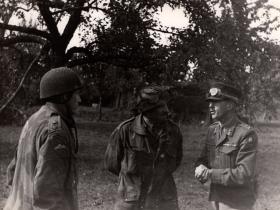
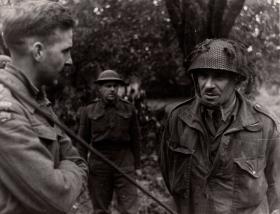
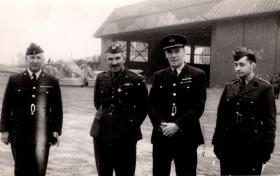
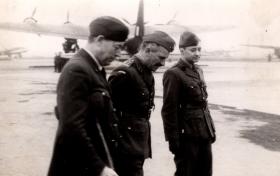
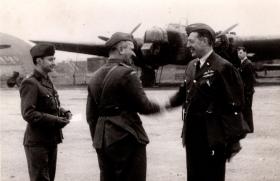
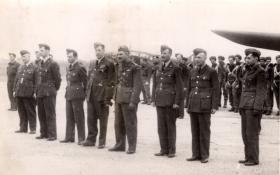
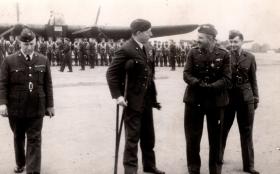
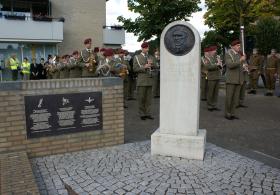
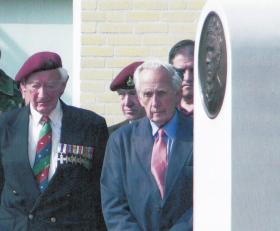
Latest Comments
There are currently no comments for this content.
Add Comment
In order to add comments you must be registered with ParaData.
If you are currently a ParaData member please login.
If you are not currently a ParaData member but wish to get involved please register.